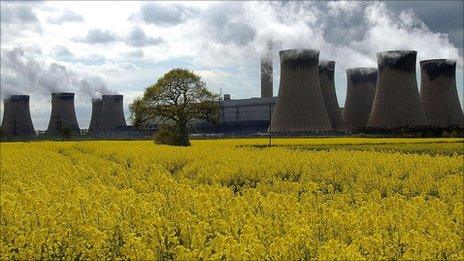Drax power station emissions 'dangerous', claim environmentalists
- Published
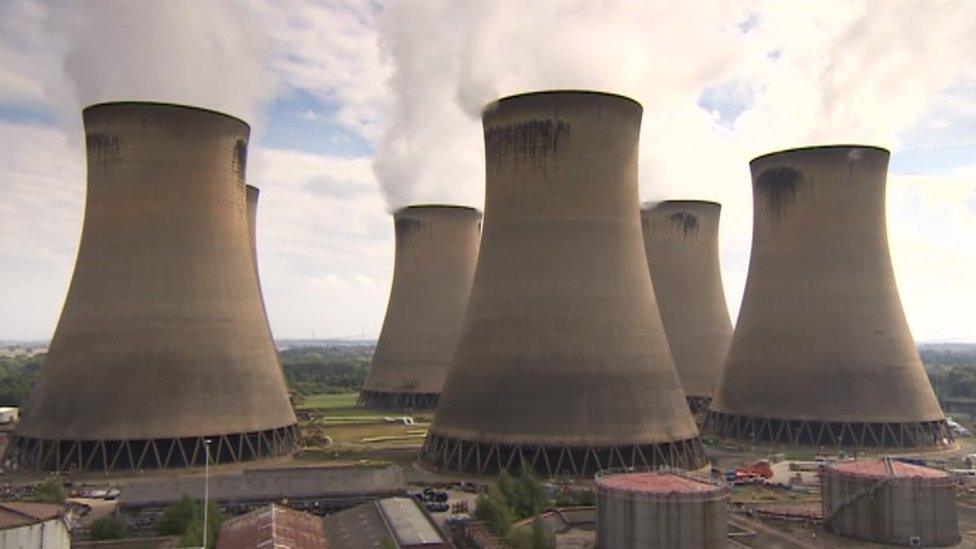
Environmental campaigners say emissions of dust particles from Drax's power station has "increased by 135%"
A UK power station is producing "dangerous" levels of air pollution, an environmental group has claimed.
Campaigners Biofuelwatch said emissions of dust particles from Drax's plant near Selby, in North Yorkshire, had increased by 135%.
It said emissions of particulates from the site were 897 tonnes last year compared to 382 tonnes in 2008.
Drax, which switched from coal to biomass in 2013, said its emissions were "well within statutory limits".
More on this and other stories from across Yorkshire
The environmental organisation said it carried out an investigation, in which it found Drax was releasing particulates - a mixture of tiny solid and liquid particles - "equivalent to adding three million diesel cars to the roads each year".
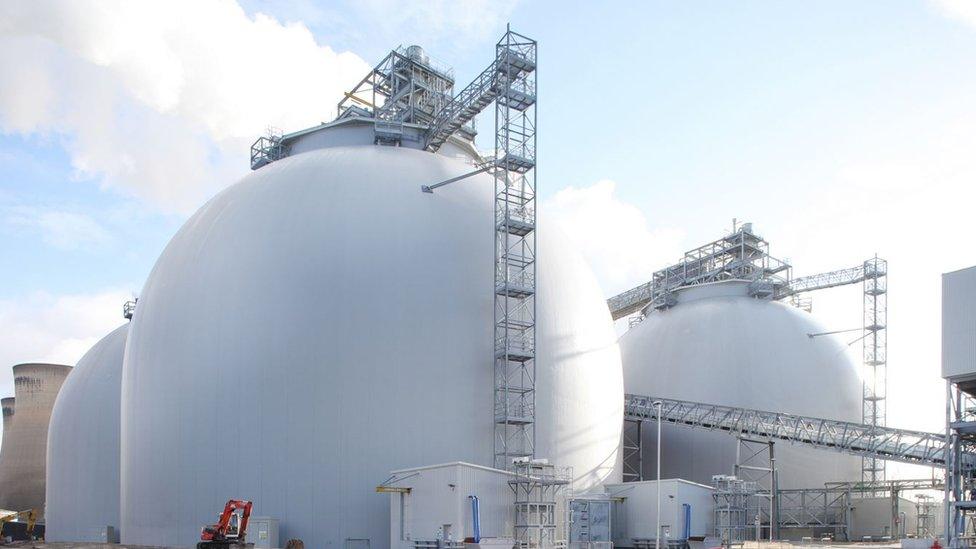
Drax said it had delivered "carbon savings of 68% compared to gas power stations and 80% compared to when using coal"
In its report, external, Biofuelwatch said particulates were "an especially dangerous form of air pollution" and linked it to a number of health problems including cancers, heart disease and stroke.
"The smaller the particle, the deeper it can penetrate into the lungs and particles of PM2.5 [a diameter less than 2.5 micrometres] and below can even enter the bloodstream and travel to other organs, causing inflammation, DNA and tissue damage and restriction of blood vessels."
Claire Robertson, author of the report at Biofuelwatch, criticised Selby District Council for the lack in air quality monitoring, saying it was "appalling" and called to end biomass subsidies.
The council said it had "no statutory duty to monitor emissions from the power station".
'Currently compliant'
In a statement, Drax Power CEO Andy Koss insisted emissions were in line with guidelines set out by the government.
"We manage all our emissions to the atmosphere and have invested heavily to make sure that we comply with all air emission limits. For example, last year we reduced our NOx emissions by 53%."
The Environment Agency confirmed Drax was "currently compliant with its permit" and was within its emissions limits.
The power station uses about seven million tonnes of biomass or wood pellets a year, much of it imported, particularly from the US.
- Published16 February 2016

- Published22 October 2015
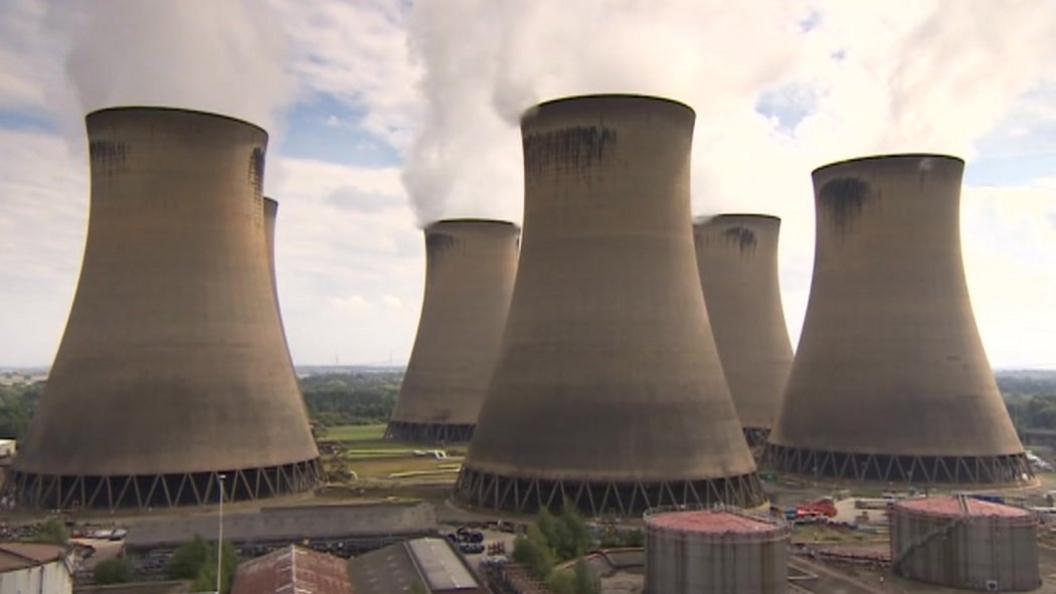
- Published3 December 2014
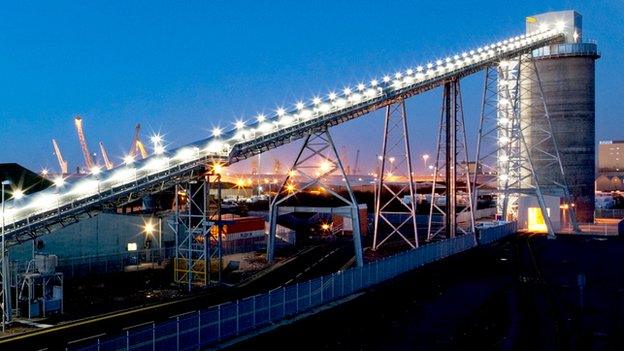
- Published9 December 2013
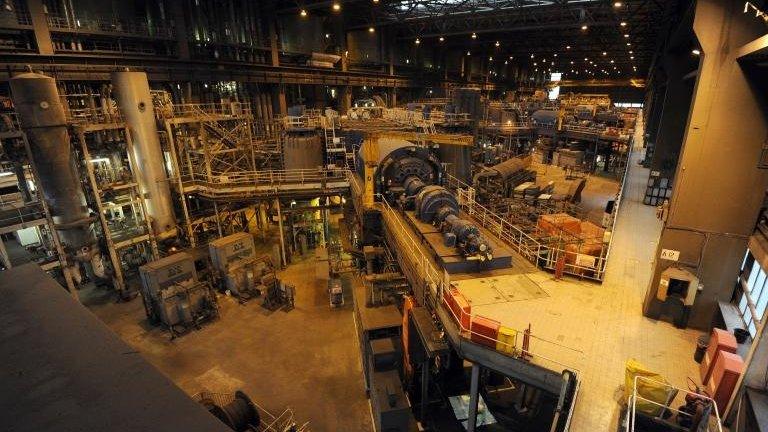
- Published17 July 2013

- Published12 November 2012
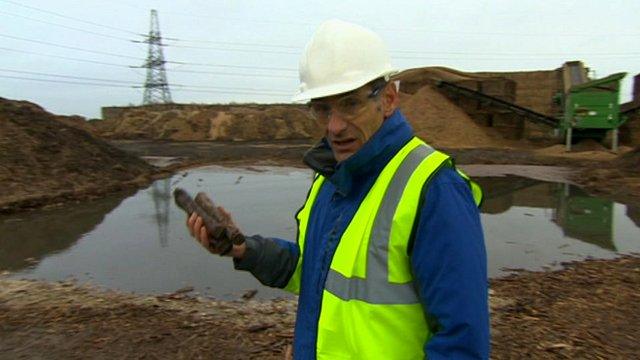
- Published22 February 2012
